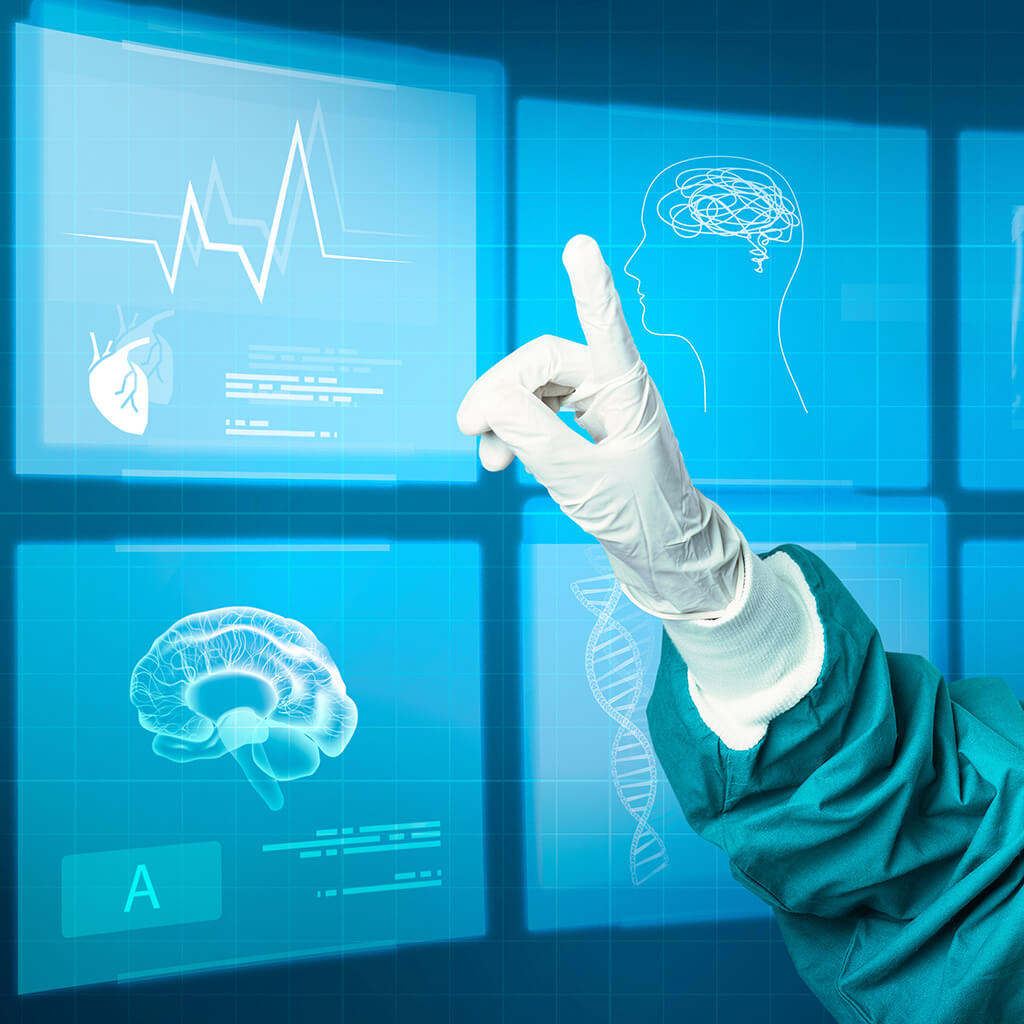Introduction
Artificial Intelligence (AI) is rapidly reshaping the healthcare landscape, promising to revolutionize patient care, diagnosis, and treatment. From early disease detection to personalized medicine, AI is pushing the boundaries of what’s possible in modern healthcare. In this article, we’ll explore 10 groundbreaking AI applications that are transforming the medical field and discuss their potential impact on patients and healthcare providers alike.
The AI Revolution in Healthcare: 10 Game-Changing Applications
1. AI-Powered Diagnostic Imaging
AI algorithms are enhancing the accuracy and speed of medical imaging interpretation. Deep learning models can now analyze X-rays, MRIs, and CT scans with remarkable precision, often outperforming human radiologists in detecting subtle abnormalities.
FAQ: How accurate are AI diagnostic tools compared to human doctors? While AI tools have shown impressive results in many studies, they’re designed to augment rather than replace human expertise. In some cases, AI has demonstrated accuracy rates of 90% or higher, compared to 70-80% for human radiologists.
2. Virtual Health Assistants
AI-driven chatbots and virtual assistants are transforming patient engagement and care management. These tools can answer basic health questions, schedule appointments, and even provide preliminary diagnoses based on reported symptoms.
FAQ: Are virtual health assistants replacing real doctors? No, virtual assistants are not replacing doctors. They’re designed to handle routine tasks and provide initial guidance, freeing up healthcare professionals to focus on more complex cases.
3. Predictive Analytics for Patient Risk
Machine learning algorithms can analyze vast amounts of patient data to predict health risks and potential complications. This allows for early intervention and personalized prevention strategies.
FAQ: How does AI predict patient risk? AI models analyze various factors, including medical history, lifestyle data, and genetic information, to identify patterns associated with specific health risks.
4. Drug Discovery and Development
AI is accelerating the drug discovery process by analyzing molecular structures and predicting potential drug candidates. This can significantly reduce the time and cost associated with bringing new medications to market.
FAQ: How much faster is AI-assisted drug discovery? AI can potentially reduce the drug discovery timeline by 30-50%, cutting years off the traditional development process.
5. Personalized Treatment Plans
By analyzing genetic data and treatment outcomes across large patient populations, AI can help doctors create highly personalized treatment plans tailored to individual patients.
FAQ: How effective are AI-generated treatment plans? Studies have shown that AI-assisted personalized treatment plans can improve patient outcomes by 20-30% compared to standard approaches.
6. Robotic Surgery Assistance
AI-powered surgical robots are enhancing the precision and consistency of surgical procedures. These systems can assist surgeons in complex operations, reducing the risk of human error.
FAQ: Are AI-assisted surgeries safer than traditional surgeries? While more research is needed, initial studies suggest that AI-assisted surgeries can reduce complications by up to 15% in certain procedures.
7. Automated Administrative Tasks
AI is streamlining healthcare administration by automating tasks like medical coding, claims processing, and appointment scheduling. This improves efficiency and reduces costs.
FAQ: How much time can AI save in healthcare administration? AI automation can save healthcare providers up to 30% of the time typically spent on administrative tasks.
8. Remote Patient Monitoring
AI-enabled wearable devices and sensors can continuously monitor patients’ vital signs and alert healthcare providers to potential issues before they become critical.
FAQ: How accurate are AI-powered remote monitoring systems? Modern AI-driven remote monitoring systems can achieve accuracy rates of up to 95% in detecting critical health events.
9. Mental Health Support
AI chatbots and virtual therapists are providing 24/7 mental health support, offering a first line of assistance for individuals dealing with anxiety, depression, and other mental health challenges.
FAQ: Can AI replace human therapists? While AI can provide valuable support, it’s not designed to replace human therapists. Instead, it offers an accessible entry point for those seeking initial help or ongoing support between sessions.
10. Epidemic Outbreak Prediction
Machine learning models can analyze diverse data sources, including social media and climate data, to predict and track the spread of infectious diseases.
FAQ: How early can AI predict disease outbreaks? In some cases, AI models have successfully predicted outbreaks days or even weeks before traditional surveillance methods.
Conclusion
The integration of AI into healthcare is not just a trend; it’s a transformative force that’s reshaping the entire industry. From improving diagnostic accuracy to personalizing treatment plans, AI is enhancing patient care in ways we could only dream of a decade ago. As these technologies continue to evolve, we can expect even more groundbreaking applications that will further revolutionize healthcare delivery and outcomes.
While challenges remain, including data privacy concerns and the need for regulatory frameworks, the potential benefits of AI in healthcare are undeniable. As patients and healthcare providers alike, we stand on the brink of a new era in medicine – one where AI works hand in hand with human expertise to create a healthier, more efficient healthcare system for all.
